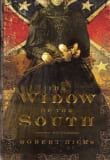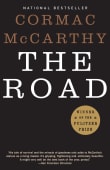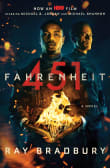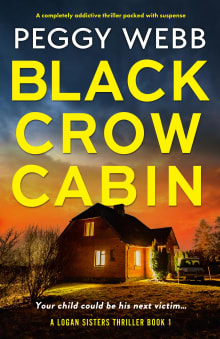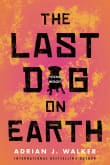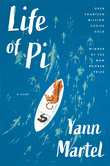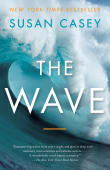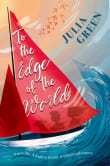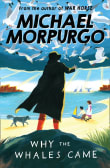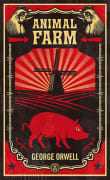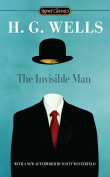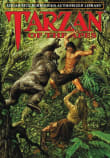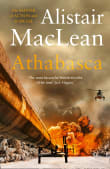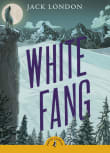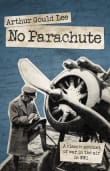Lord of the Flies
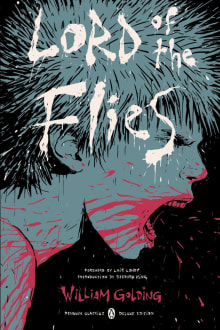
Book description
A plane crashes on a desert island and the only survivors, a group of schoolboys, assemble on the beach and wait to be rescued. By day they inhabit a land of bright fantastic birds and dark blue seas, but at night their dreams are haunted by the image of a…
Why read it?
15 authors picked Lord of the Flies as one of their favorite books. Why do they recommend it?

I couldn’t look at society the same way after reading this tale of how a group of schoolboys stranded on an island descends, step by step, into savagery. The savagery is inside all of us, and the veneer of civilization that our education puts on it is very thin and easily cracks. Haunting.
From Pedro's list on satires that changed our view of the world.

I’ll admit that I only read this book in high school because it was assigned reading in my English class, but even as a disinterested teenager, the story has stuck with me for decades. It showed me that regular people are usually much scarier and more sinister than any kind of paranormal force.
I remember reading this book and feeling an overwhelming sense of dread. I wondered how anarchy could spread so quickly and was horrified by the idea that it could happen in the real world. I love that this book didn’t rely on traditional horror tropes to be…
From Shannen's list on proof humans are scarier than ghosts.

This book took me into a world of darkness. That darkness–so beautifully juxtaposed with the innocence of childhood–left a lasting impression on me, which I haven’t shaken to this day and which has greatly inspired my writing.
There is no one protagonist, so I found myself entering the minds of several young boys as they try to make sense of the situation they’ve fallen into. Once inside their minds, I followed each of them on their equally frightening paths and was shaken to the core to see that it didn’t matter who chose to be good and who chose to…
From Laura's list on mystery that takes you into the characters head.
If you love Lord of the Flies...

I love this book because it has such a strong, dystopian message. It is told by a group of children who find themselves marooned on an island.
This tale is not for the faint-hearted. It catalogs a rapid descent into cruelty and barbarism, while the growth of warring factions and the development of superstition add to the sense of menace.
I also love that the publishers heavily edited this book before it was put on sale, including removing the first section entirely. It’s a great lesson that sometimes less really is more.
From Alice's list on thrillers set on an island.

A classic shocker. When I first read this book sometime around 50 years ago, I was shocked at how quickly the characters reverted to a primal state.
Now, that I’m older and wiser, I’m still shocked. I’m shocked at how easily the characters went primal, because I think that is a sad reality, that for most people, civility is a thin veil easily torn by the right circumstance.
From David's list on fiction that examine the human condition.

I have a deep connection with this novel.
I first read it for school when I was about 16 or 17 years old. Now an English teacher myself, I read it for the umpteenth time this year with my Year 11 class, and it was an incredible experience. It was the first time I have taught it at a boys' school. Wow! Thadgot it! Each time I revisit the book, I uncover more subtleties within its pages.
The characters are so well-crafted, and I never fail to be invested in their harrowing journeys. As a mother of two sons, the…
If you love William Golding...

Admittedly I don’t read enough fiction. However, good fiction books can be just as (if not more) instructive to business ethics students and practitioners as the best non-fiction works. The best ones provide lessons that are timeless. One example of this is Lord of the Flies. Based on the story of a group of schoolboys who become stranded on a deserted island, the book is a window into the dynamics that emerge when humans form groups – hierarchies naturally emerge, the battle for power is rarely pleasant, and power in the wrong hands invariably corrupts. More importantly, it…
From Dennis' list on business ethics students and practitioners.

Islands are very much microcosms of the world, but they can be quite insular. Almost exempt from the rules of wider society. I first read Lord of the Flies in school – often a bit of a scary island in itself – and I read it in the way you drive past a horrific car crash: you don’t want to look because you know something awful has happened and is still happening, but you can’t help it. I was not popular in high school, and really identified with poor Simon and Piggy; the story is so frightening because it’s so…
From Carole's list on eerie islands.

Taking you to another (maybe not so nice) world is Lord of the Flies. Once again, I read this when I was in school and Wow! did it scare me. I was so involved in the intricate lives of these boys, left without any adults to supervise them, and this strange, almost primeval society they construct from the very jungle itself. I could put myself in their shoes, imagining this classmate being Ralph, Jack, Piggy, or Simon. I saw myself in their struggle to maintain their last ties to humanity, and realized we are all just a hair’s breadth away…
From Laura's list on taking you to another world and forget the one you're in.
If you love Lord of the Flies...

Some of the most deep and memorable conversations I've had with my friends entailed "how do you recreate civilization after civilization collapses?" I found that Lord of the Flies humbled my utopian ideas as it presents some logical steps of social disintegration. What's great about this story is that it's not even set in a remnant of civilization, but drops us straight onto an island. The cast of characters is so perfectly written as we see children trying to not only survive but to create their own civilization on this island. I found these images to be vivid and perfectly…
From Konstantin's list on the worst ways the world could end in a book.
Want books like Lord of the Flies?
Our community of 12,000+ authors has personally recommended 100 books like Lord of the Flies.



